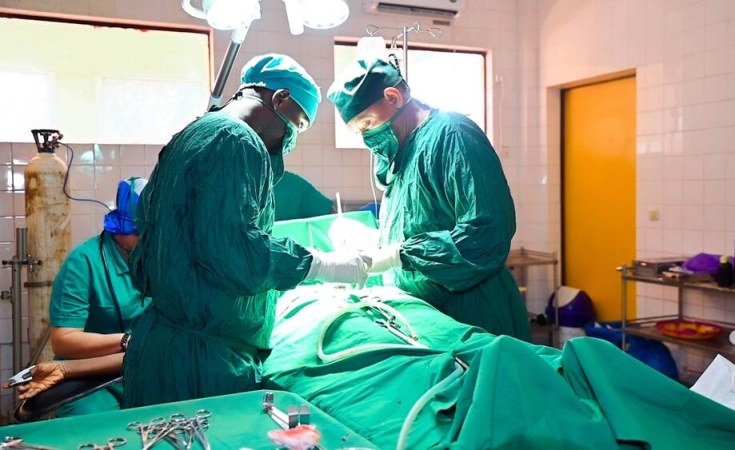Uganda, Malawi, and Mozambique - Obstetric fistula, a childbirth injury that results in incontinence and social isolation, is a preventable condition that was suffered needlessly by Kente, Rachel, and Mauridia. Their stories are highlighted below to showcase the challenges faced by women with obstetric fistula, and the transformative impact of receiving proper care.
Just 17, Kente, from Uganda, was not ready to be a mother yet she found herself pregnant. She thought the process wouldn't take long when she went into labour at home. Two days passed. Her baby had not yet been born and the pain was unbearable.
Facing complications, she was taken to one health facility after another and eventually, she delivered a stillborn child. In the aftermath of her tragic loss, Kente faced the additional burden of obstetric fistula and continually leaked feces and urine. She lost her self-esteem as a result, and she returned home to her parents as she was unable to stay with her husband.
Worldwide, it is estimated that half a million women live with obstetric fistula, predominantly in rural areas with poor roads or in conflict zones. The majority of these - an estimated 350,000 women - live in sub-Saharan Africa.
In Malawi, Rachel Kachepatsonga encountered a different situation with a similar outcome. After giving birth to her first child, she wanted to use family planning yet the distance to the health centre, combined with a lack of support from her husband and family, led to another pregnancy. She faced severe complications during childbirth without receiving adequate support, resulting in obstetric fistula.
"It was a painful period for me. I couldn't associate with my neighbours. Sometimes I would try to visit friends but they would run away, saying I was smelling," she said.
The impact of this childbirth injury extends beyond the physical. Survivors find themselves at an elevated risk of experiencing gender-based violence from partners. Their reduced capacity to work due to incontinence hinders their ability to escape their difficulties at home. This, combined with depression, anxiety and/or post-traumatic stress disorder makes obstetric fistula a priority for intervention as it affects women in all areas of their lives.
The stories of Kente and Rachel
A few months after giving birth, Kente received surgery to repair her obstetric fistula. Her condition persisted as the operation was not entirely successful, but she has managed to regain some autonomy in her life.
Rachel's recovery was complete. She was referred to Bwaila Fistula Centre in Lilongwe, where she underwent successful surgical repair. With UNFPA's support, she and other fistula survivors received a solar kit that consists of a phone charging system and a barbershop kit to help with income generation.
Disability and obstetric fistula
In the East and Southern Africa region, stories abound of women with disabilities facing heightened risks during pregnancy. Mauridia Hilário, who was born with a disability that restricted her mobility, became pregnant at 15. The distance from her community, Landinho in Mozambique, to a health facility delayed her access to critical antenatal care and skilled birth attendance, resulting in obstetric fistula.
Every year, about 33,000 new cases of obstetric fistula occur in Africa. UNFPA is responding to this crisis by supporting fistula treatment centres throughout the region, helping thousands of women and girls to access the care they need. Reintegration services are also a key part of our support, bringing psychological aid and skills training to empower survivors.
For Mauridia, help came in the form of a community activist who recognised her condition and advised her to seek support at a nearby fistula centre. Now an entrepreneur, she has returned to school and is proof that survivors of obstetric fistula can thrive after receiving life-changing surgery.
Women with disabilities face a higher risk of pregnancy complications, including obstetric fistula, due to greater challenges in accessing health facilities for timely emergency obstetric care. Women with pre-existing disabilities must have access to quality sexual and reproductive health information and services, including emergency obstetric care tailored to their needs. A comprehensive approach is essential for preventing obstetric fistula and other complications during pregnancy and delivery.
While the journeys of these three survivors - Kente, Rachel and Mauridia - are unique, they share a common thread: persistence and strength. Through access to health care, surgical interventions and social support, these women have not only survived but found their footing and pride in their communities. Their stories inspire us to continue the fight against obstetric fistula, ensuring that every woman has the chance to reclaim her life and dignity.


